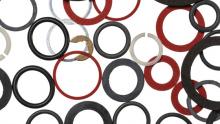Reducing our reliance on critical raw materials

Technologies such as our beloved smartphones have taken the world by storm, but some of the materials needed to make them are in short supply. This is also true for other crucial applications - industrial catalysts, for instance. Two projects jointly funded by the EU and Japan have looked into possible substitutes for various critical metals.








